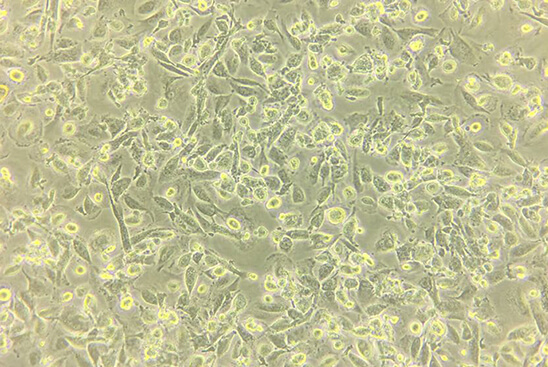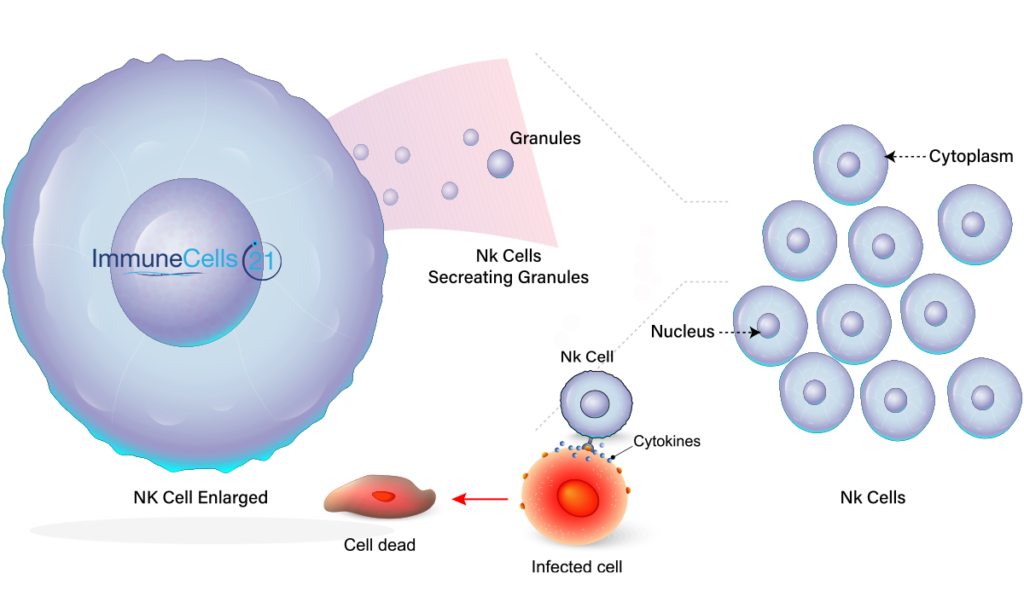What are NK Cells

Natural Killer Cells (NK Cells) are lymphocytes which are in the same family as T and B cells, coming from a common progenitor. However, as cells of the innate immune system, NK are classified as group I Innate Lymphocytes (ILCs), which respond to a wide variety of pathological challenges. They are most commonly known for killing virally infected cells, and detecting and controlling early signs of Cancer. As well as protecting against disease, NKs are an important aspect of healthy aging.
NK cells were first noticed for their ability to kill tumour cells without any priming or prior activation (in contrast to cytotoxic T cells, which need priming by antigen presenting cells). They are named for this ‘natural’ killing. Additionally, they secrete cytokines such as IFNγ and TNFα, which act on other immune cells like Macrophage and Dendritic cells to enhance the immune response.

NK Cells were first noticed for their ability to kill tumour cells without any priming or prior activation (in contrast to cytotoxic T cells, which need priming by antigen presenting cells). They are named for this ‘natural’ killing. Additionally, NK cells secrete cytokines such as IFNγ and TNFα, which act on other immune cells like Macrophage and Dendritic cells to enhance the immune response.
While on patrol NK constantly contact other cells. Whether or not the NK cell kills these cells depends on a balance of signals from activating receptors and inhibitory receptors on the NK cell surface. Activating receptors recognise molecules that are expressed on the surface of cancer cells and infected cells, and ‘switch on’ the NK cell. Inhibitory receptors act as a check on NK killing.
Most normal healthy cells express MHC I receptors which mark these cells as ‘self’. Inhibitory receptors on the surface of the NK cell recognise cognate MHC I, and this ‘switches off’ the NK cell, preventing it from killing. Cancer cells and infected cells often lose their MHC I, leaving them vulnerable to NK cell killing. Once the decision is made to kill, the NK releases cytotoxic granules containing perforin and granzymes, which leads to lysis of the target cell.
Patients deficient in NK numbers and the cytotoxicity levels, prove to be highly susceptible to Viruses, Pathogens, Aging Frailty, and Cancer.

